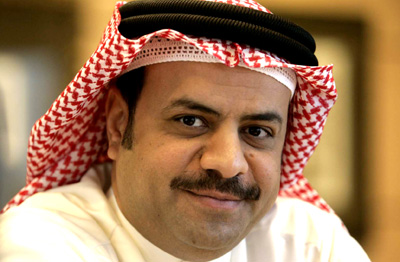
Arcapita eyes new investments after Chapter 11
Manama, September 29, 2013
Bahrain-based Arcapita is aiming to build a new asset management firm with a debut local deal in the logistics, education or healthcare sector as the company recovers from the first Chapter 11 bankruptcy process undertaken by a Gulf entity.
The Islamic investment firm emerged from Chapter 11 on Sept. 17 after seeking court protection in March 2012 under hedge fund pressure ahead of the repayment of a $1.1 billion Islamic loan.
Under the court-approved restructuring plan, Arcapita is to be split into two entities: one which will hold the existing company assets as they are sold down to pay creditors, with a second in charge of the process' management.
It is the latter which is hoping to rebuild itself going forward, said Atif Abdulmalik, chief executive of Arcapita, with the entity aiming to raise $100 million of new equity from original Arcapita investors by January to help fund dealmaking.
"Our name still carries credibility and integrity as we kept on facing our investors and shareholders even during the darkest days of Chapter 11, telling them that what happened has happened but we're not going to let you lose here," Abdulmalik told Reuters in an interview in Dubai.
"The interest is there, from the same old board members and investors. They're interested to roll the dice again," he added.
Abdulmalik said it was looking for investments that would yield in the region of 8 per cent, although this would depend on the transaction, with logistics, education or healthcare the likely areas from which a first deal would emerge.
It had no deal currently lined up, he said.
New investments would be made utilising investor funds and pre-placements with investors as this would be less risky for the company, although some debt may be used to fund acquisitions, Abdulmalik said, adding debt at the company level would be much less than before the crisis.
"To mortgage your future on leverage is a very dangerous game as a mismatch could happen at any time," Abdulmalik said, adding the company had banking relationships it could use to raise finance when it needed it.
Like many Gulf private equity and asset managers, Arcapita was hit hard by the financial crisis as the debt used to fund acquisitions made at a time of peak valuations could not be refinanced, with asset sales in a depressed market not viable.
The Chapter 11 process, also the first to use a debtor-in possession financing which complied with Islamic finance principles such as a ban on interest, ensured Arcapita's existing portfolio could be sold without a firesale.
"All the Gulf should have an equivalent of Chapter 11, where you bring creditors and owners and tell them 'this is a good business, the past is the past, is there a deal to be done going forward'," Abdulmalik said.
Gulf bankruptcy law is known for being untested, with creditors finding it difficult to secure enforcement action against assets in states with strict foreign ownership controls.
This has lead to many restructurings, such as the $25 billion Dubai World deal, to be agreements where obligations are extended to allow for businesses and asset values to recover.
Arcapita could use the Chapter 11 framework because it had assets in the United States.
The new Arcapita's assets under management, through its contract with the old firm, was $3 billion, Abdulmalik said, with around 35 businesses in the portfolio including private equity, real estate and infrastructure.
The recovery in values meant some US-based assets would be sold in the near future, he said, without giving specifics.
There were no targets in terms of raising revenue from asset sales but, under the management contract, the new Arcapita would receive incentive fees, with levels depending on the rate of return achieved on the investment, Abdulmalik said.-Reuters







